Māori economy: opportunities and challenges
This entry will help you find the best websites and databases that explore the history and development of the Māori economy including the challenges Māori faced from the New Zealand Wars, land sales and decisions made by the Native Land Court.
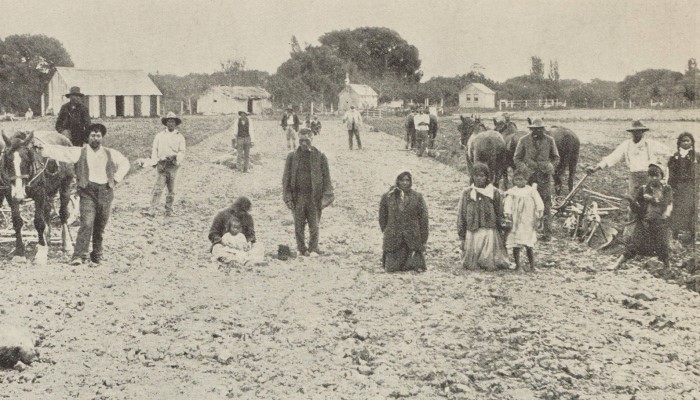
Image: The Māori at work: natives planting their annual crop of potatoes, Ohinemuri, Auckland, New Zealand by A Sherlock. Collection: Auckland Libraries Heritage Collections AWNS-19030129-05-01.
Keywords
Here is a list of some keywords to help you find information on the history and development of the Māori economy. Use this list when searching the collections and websites in this entry.
Apirana Ngata (Ngāti Porou): Native Minister. Was able to secure government money to help Māori cultivate their land.
Fisheries: Waitangi Tribunal settlements in 1989 and 1992 gave Māori control of one-third of New Zealand's commercial fisheries.
Flour mills: Around the 1840s to 1850s iwi from Auckland and other areas invested in water-powered mills to grind the wheat they grew.
Gold mining: Māori joined the gold rushes around the 1850s.
Māori barter economy: Early Māori exchanged goods of the same value eg potatoes and fish for nails from early explorers to Aotearoa.
Māori food production: Māori grew potatoes, wheat and other agricultural products to trade with European settlers.
Māori land loss: The sale of Māori land, land confiscation, and land laws such as the New Zealand Settlement Act 1863 and the Native Land Act 1865 had a huge impact on the Māori economy.
Māori shipping: By the 1840s, Māori from places like Auckland, Bay of Plenty, and Hauraki began buying ships.
Māori tourism: Māori art, craft, kapa haka performances and hāngī experiences have become huge tourist attractions.
Māori trade: Gift exchange and bartering were two ways that Māori and Pākehā traded goods. Māori traded with early explorers, whalers, and European settlers in Aotearoa and overseas with Australia.
Waitangi Tribunal: Set up in 1975 to look at breaches (breaking) of the Treaty of Waitangi.
Tips: Before searching it can be useful to come up with a list of words to use. These are sometimes called keywords or search words. They can be the name of a person, place, or event you are researching. You can leave out small words like ‘the’ and ‘of’ and just choose the main ones, eg 'Māori shipping'. We can always change our keywords or add more if we need to.
Tips: Also keep in mind that there are different names or spellings for words. Or they could have changed over time.
Auckland resources
Here are some collections from Auckland Libraries and other reliable Auckland based museums and heritage websites. They will help you find books and information on Māori and their experience with economic opportunities and the challenges faced.
Auckland Libraries Catalogue
This catalogue from Auckland Libraries will help find books on Aotearoa New Zealand and Auckland's histories.
Search the catalogue using keywords like ‘Māori tourism’ or 'Māori trade’.
You can get fewer results by using the filters under Refine by.
Select a book that interests you.
Go down the page to Edition information to check if the book can be borrowed or if it’s for In library use only.
Look further down the page to Related Resources to find other titles related to this search.
If you have an Auckland Libraries library card you can request the item to be sent to you at your local library.
Tips: If the status of the book is 'In library use only', it means the book can only be used in the library and can't be taken home. In this case, you will need to fill out a form or speak to a librarian about reading the book in the library.
Tips: You will find lots of books that have been written over 50 years ago. While they are good sources of information, we need to remember the context and time when they were written.
Kura — Photographs
Browse photographs, illustrations and works of art from the 1800s to the present day.
Begin searching with the keywords 'Māori agriculture' or 'Māori farmers'.
View images like Modern methods of agriculture used by Māori on the estate of a well-known Native Prophet near Wanganui and Governor-General presents cup to best Māori farmer.
Tips: Always remember to check the copyright or usage rights of images. This will tell you if you need permission to use the image, and how to attribute the image.
Heritage et AL
The Heritage et AL blog is written by librarians and is a useful way to find information about Auckland Libraries heritage collections.
In the search bar, search for keywords such as 'Māori industry'.
Read the article Flour, bread and bakeries to read about Māori who bought water-powered mills.
Also read Porky Pies to read how Māori used pigs as currency in early trade.
Tips: Blogs can be good for looking at how things have continued or changed over time. Remember, stories can be told in different ways so it’s helpful to look at multiple information sources to find different perspectives.
Tāmaki Paenga Hira | Auckland War Memorial Museum
This is one of New Zealand's significant heritage libraries. It has pictorial and art, Māori and Pacific, natural, social, and history collections. It is a great place to visit and check out exhibitions and galleries about topics involving Aotearoa New Zealand's histories.
Use the keywords 'Māori trade'.
Read the blog Trade Trade Beads and Nails.
This is about the trade and exchange between the Endeavour and Māori.
Also read Timeline.
There is information about opportunities for trade for Māori, and a flag selected by by Māori chiefs to be flown on all New Zealand trading ships.
Tips: Museums preserve and exhibit important cultural, artistic, historical or scientific artefacts. Some store personal collections. A lot of them have online collections and articles based on these collections.
General New Zealand resources
The websites below belong to government agencies, national museums, archives, libraries, and other reliable sources. They will help you find information on the history of Māori business and economic activity, and the problems they faced.
Te Ara: The Encyclopedia of New Zealand
Te Ara is an excellent starting point for all questions about Aotearoa New Zealand. If we look down to the bottom of the page, we can see that the website belongs to the Ministry for Culture & Heritage, so the information is well-researched and reliable.
Te Ara has a Sitemap where all its stories are broken down into sections.
Go down the page to the section on Economy and the City.
Select Economic History and Geography to find stories on Te Māori i te ohanga – Māori in the economy, Ngā umanga – Māori business enterprise and Te ohanga onamata a rohe – economic regions.
Then check out Retail and Commerce to read Te tāpoi Māori – Māori tourism and Ngā haumi a iwi – Māori investment.
Next, look at the section called the Labour Force to find Te rāngai mahi – Māori in the workforce.
You can also use keywords from the lists above to find information on Te Ara.
NZ History
NZ History is another great website for information about Aotearoa New Zealand. If we go all the way down the page we can see that the website belongs to the Ministry for Culture & Heritage, so the information is well-researched and reliable.
Try the search words 'Māori trade'.
The link on Sealers and whalers has information on Māori and whaling.
Tips: We like sites like this because they’re reliable. You can tell because of their web address – they have either .govt or .ac, meaning they are from government or educational organisations. They’re also New Zealand sites, so relevant for us.
Museum of New Zealand | Te Papa Tongarewa
New Zealand's national museum located in Wellington has an online collection of images and articles on various topics such as dinosaurs, art, zoology, history, Māori and Pacific cultures and war.
From the top of the page select Discover the collections, then select Read, watch, play.
Look for the collection called Māori, then look under Te Tiriti o Waitangi |The Treaty of Waitangi for Māori and British trade.
Tips: Museums preserve and exhibit important cultural, artistic, historical or scientific artefacts. Some store personal collections. A lot of them have online collections and articles based on these collections. They are great places to visit.
Ngā Taonga Sound & Vision
Funded by the Ministry for Culture and Heritage, Ngā Taonga Sound & Vision is New Zealand’s audio-visual archive. Their collection includes film and television, radio and sound recordings, props, posters and more from over 120 years of New Zealand’s history.
Use the search box at the top of the page to enter search words like 'Māori trade'.
Make sure to select View or listen online now after each search as not all items can be viewed or listened to online.
Listen to Towards Tomorrow where Māori students are encouraged to pursue careers in the Pākehā world.
Use the keywords 'Māori economy' to listen to Te Mana Māori programmes about Marae Enterprises helping Māori communities set up businesses.
The search words 'Māori fisheries' will help you find Māori Fishing Commission - First Annual Meeting and Māori - Sealord Fisheries deal.
Tips: Websites that have .org or .net in the address can have good information, but you need to assess how reliable it is. Check the About us link on the website, if you can find one. That can tell you what the organisation’s mission and values are.
Aotearoa History Show
This video podcast from Radio New Zealand tells the story of Aotearoa New Zealand from when the land was formed to today.
Go to Season 2 Ep 6: Native Land Court and 8: Colonists & Courts to understand how Māori lost their land.
Episodes 5: New Zealand Wars (Part 1) and 6: New Zealand Wars (Part 2) explain the impact the wars had on Māori land ownership.
These episodes explain some of the barriers that impacted the Māori economy.
Tips: Websites that have .com or .co in the address can have good information, but you need to assess how reliable it is. Check the About us link on the website, if you can find one. That can tell you what the company’s mission and values are.
The Prow
The Prow is a project shared between Nelson Public, Tasman and Marlborough District Libraries, Nelson Marlborough Institute of Technology, and The Nelson Provincial Museum. You will find here lots of historical and cultural stories.
Use the search box to enter the keywords 'gold mining'.
Then select to read Kōura - Māori and Gold.
Then use the tab on Enterprise to find Pakihi - Māori and Business and Ahumāra - Māori horticulture.
Ministry for Primary Industries (MPI) | Manatū Ahu Matua
The work of MPI is focused on production, safety and sustainability in New Zealand's primary industries, for example, fishing, aquaculture, forestry and agriculture.
Find the section on Fishing and aquaculture.
Read Māori customary fishing rights guaranteed by New Zealand law.
Te Puni Kōkiri | Ministry of Māori Development
This department provided the government of Aotearoa New Zealand on Māori wellbeing and development.
Choose the tab Ngā pūtea me ngā ratonga Our funds and services.
Look at Pakihi Māori — Māori Enterprise to read about government support to progress Māori businesses.
Ministry of Business, Innovation & Employment (MBIE) | Hīkina Whakatutuki
MBIE plays an important role in helping shape the economy of Aotearoa New Zealand. You can read more about this government department from the About page.
Go to the tab Immigration and tourism, then select Tourism.
Look under Tourism projects for Supporting Māori tourism.
You will find links to New Zealand Māori Tourism and New Zealand Māori Arts and Crafts Institute.
Both are New Zealand's leading Māori tourism business enterprises.
Tips: Government websites are reliable and trustworthy. The websites are a good place for people to find out about past, current and future government plans and the role of the government to support such plans. It’s also a way of informing communities about services and updates from the government.
Books
You can also visit your local public library for books on Auckland and Aotearoa New Zealand histories. Listed below are a few titles to help you with your search for books on this topic:
Te ōhanga Māori i Tāmaki Makaurau = Auckland's Māori economy by Hillmarè Schulze, Konrad Hurren and Connor McIndoe
The Maori economy, science and innovation by Ganesh Nana, Fiona Stokes, Wilma Molano
The Maori economy: a survey to the time of the coming of the European by W B Sutch
Te ōhanga Maōri 2018 = The Maōri economy 2018 by Reserve Bank of New Zealand
Not in Narrow Seas: The Economic History of Aotearoa New Zealand (2020) by B H Easton
Chiefs of Industry: Māori Tribal Enterprise in Early Colonial New Zealand by Hazel Petirie
SCIS no: 5496697
More about Auckland
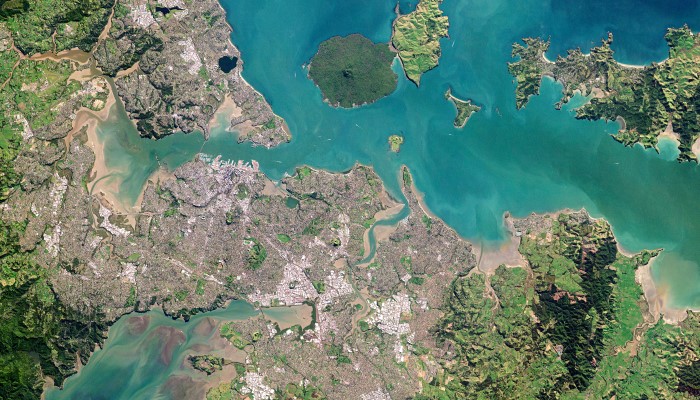
Local iwi
There are many iwi with ancestral relationships to Tāmaki Makaurau. This page lists iwi and websites which have information about their histories.
Learn about local iwi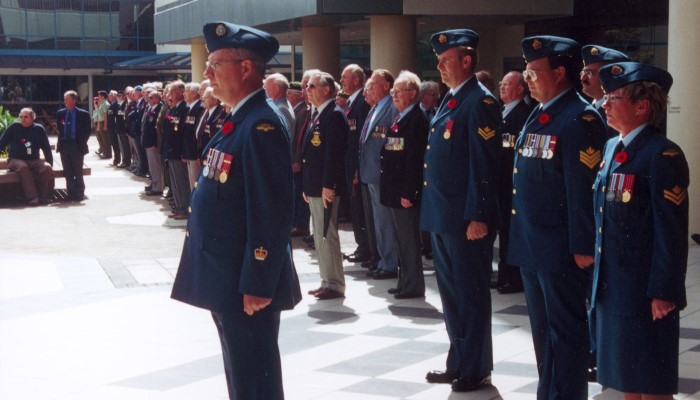
Changing views on conflict
This entry recommends resources to find out how New Zealand's involvement and views of conflict have changed over time, and how wars are commemorated. It also looks at New Zealand's work with the United Nations and current ideas of national identity.
Learn about changing views on conflict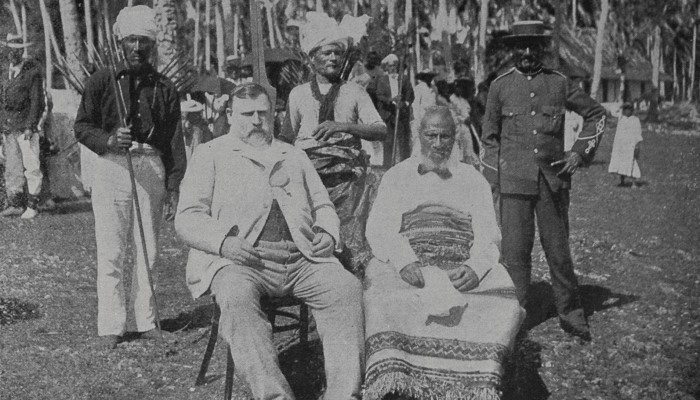
Colonial power in the Pacific
This entry has collections and websites to help explore the history of New Zealand's presence and colonial power in the Pacific. It has examples of the rise of independent Pacific nations and how they sustained their culture and presence in the Pacific.
Learn about colonial power in the Pacific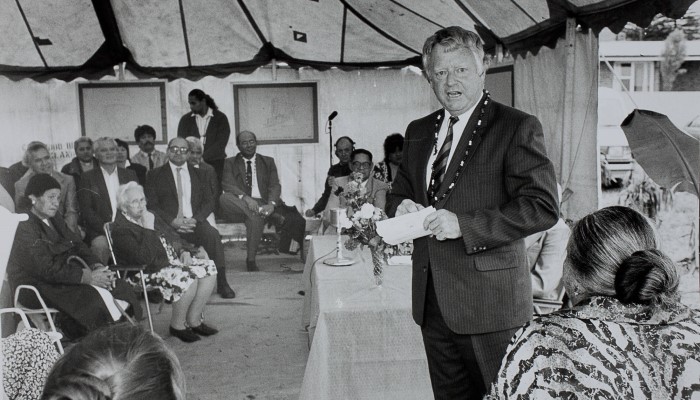
Decolonising the Pacific
This entry will help you find the best websites and collections to explore the decolonisation of the Pacific, including Aotearoa New Zealand's continued interests in the region.
Learn about decolonising the Pacific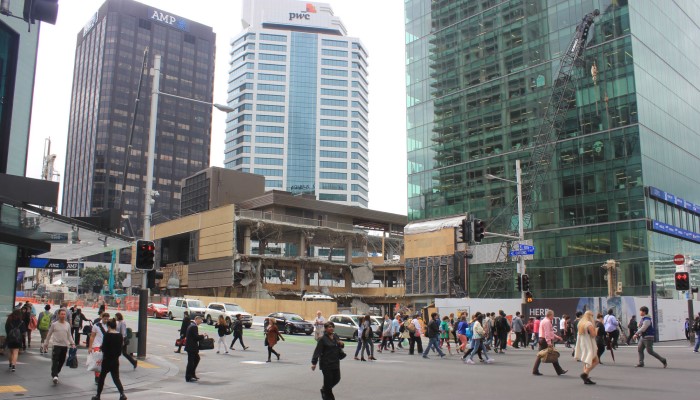
Economic independence and vulnerability
This entry will help you find information about the history behind Auckland's economic progress and independence, and the factors that impacted it.
Learn about economic independence and vulnerability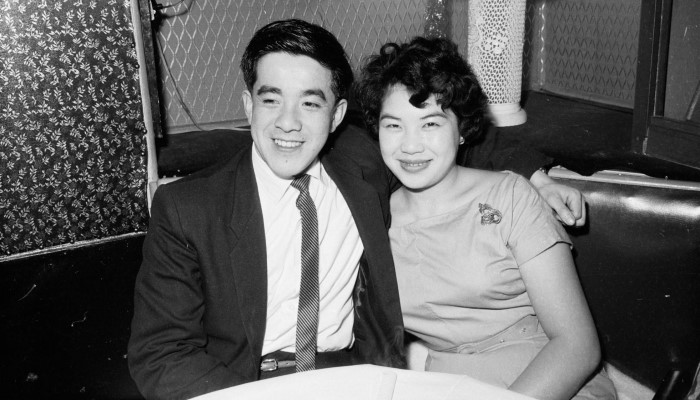
Finding a place in Aotearoa New Zealand
Since the 1700s, new people have immigrated to Aotearoa. Some came in search of a better way of life or because their country was no longer safe. Newcomers could experience racism and discrimination. They also helped shape New Zealand as a country.
Learn about finding a place in Aotearoa New Zealand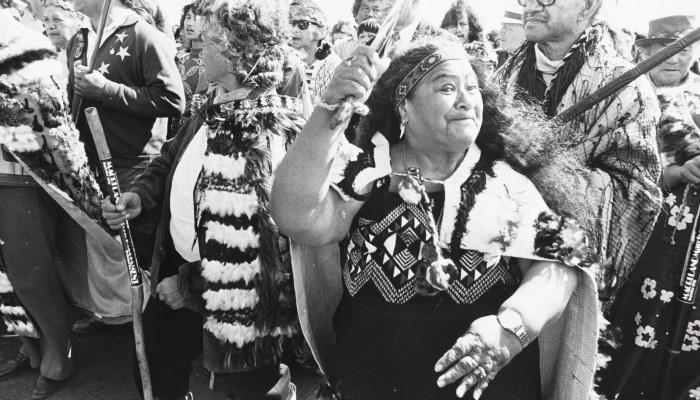
Mana in Māori society
This entry has websites to help you understand the different meanings of mana and its importance in political, social and traditional relationships in Māori society.
Learn about mana in Māori society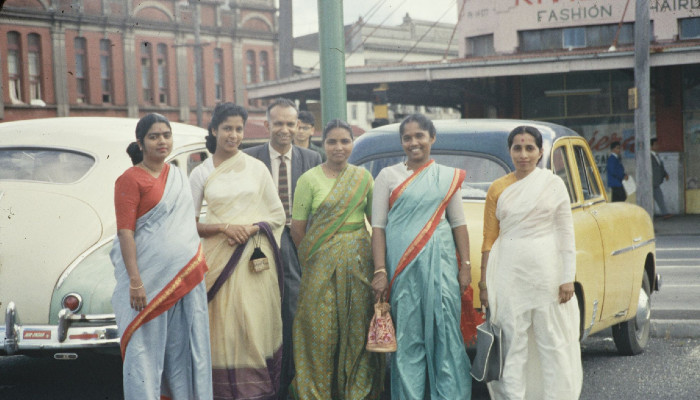
Peopling the colony: inclusion and exclusion
This entry recommends places to find information about the history of immigration to Tāmaki Makaurau and New Zealand. This includes immigration laws and changes, the role of Māori in immigration, and the government's attempt to set right past injustices.
Learn about peopling the colony: inclusion and exclusion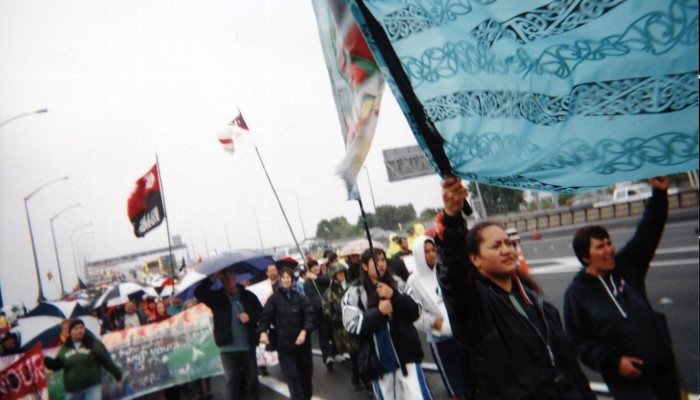
Sovereignty vs rangatiratanga: wars, laws and policies
This entry recommends websites where you can find information about the impacts of land laws on Māori, the New Zealand Wars, and attempts by Māori to find justice and build a relationship with the Crown.
Learn about sovereignty vs rangatiratanga: wars, laws and policies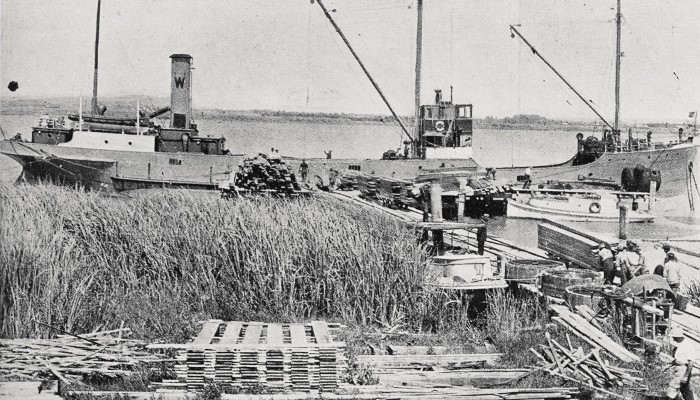
Technology and economic development
This entry will help you understand how advances in technology and land acquisition developed Auckland's economy but greatly impacted Māori and their economy.
Learn about technology and economic development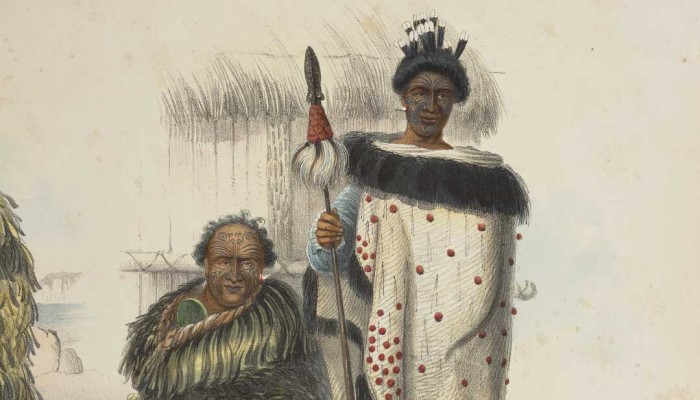
Te Tiriti o Waitangi
This entry recommends websites and collections to find information about He Whakaputanga o te Rangatiratanga o Nu Tireni | The Declaration of Independence and the Treaty of Waitangi | Te Tiriti o Waitangi, their significance, and the signatories.
Learn about te Tiriti o Waitangi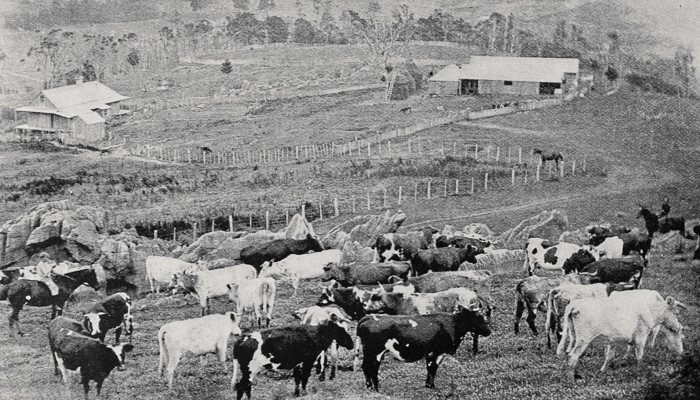
Transforming environments
This entry explores changes made by settlers to Aotearoa's natural environment, their naming of places and features, and efforts to conserve and restore its natural beauty.
Learn about transforming environments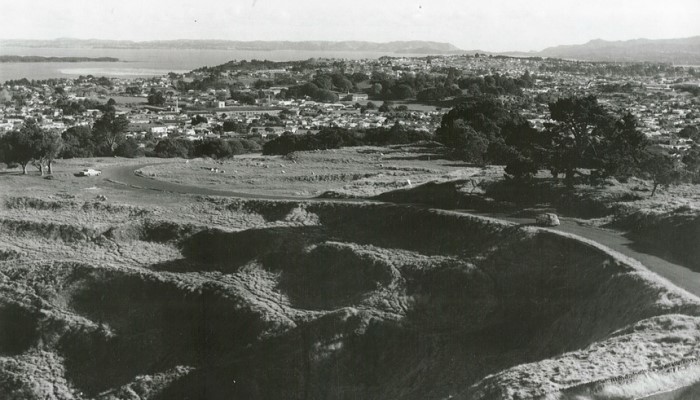
Transforming te taiao
This entry will help you find information on the changes made to the environment by pre-European Māori, and their care and connections to te taiao (the natural world).
Learn about transforming te taiao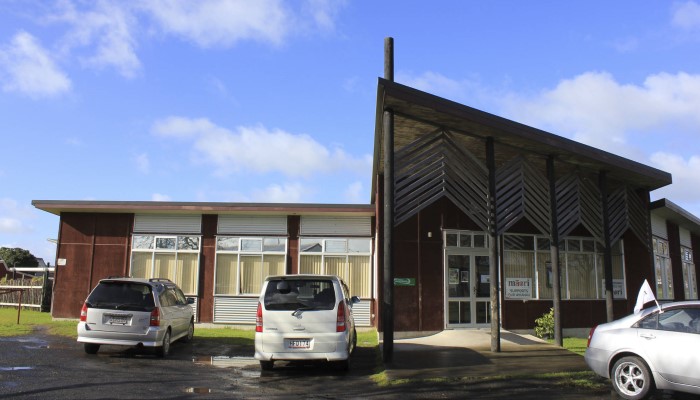
Urbanisation and being Māori
This entry will help you find information about Māori migration to cities, their challenges, and what this meant for their identity as Māori. You will also find information about some protests Māori were involved in to challenge political and social ideas.
Learn about urbanisation and being Māori
